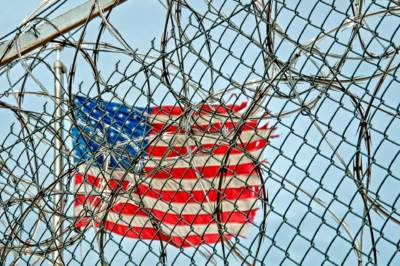In the spring semester of my junior year, Jose* started hanging out with my friend group. The problem was he also hung out out with local gang members.
Jose was from south of Worcester, Massachusetts. As a fellow Puerto Rican, he came to me for assistance when he was kicked out of his home, hoping to change course. And as a Worcester State University student, he knew my school offers help to college students struggling with gangs. Jose tried to get help from my professors, but he was too far into gang life to make his way out. While trying to help Jose, I met his friend Pablo*, who wanted assistance, as well. This is how I began working with students involved in gang activity – and embarked on hopefully a lifelong career of social work.
My wish for Pablo was for him to be free from gang activity and free to just be a college student. Even if others didn’t believe in him, I knew this Dominican low-income gang member had a lot to bring to the table. I knew the same skills he used as a gang member could be positive tools for his future. He had good people skills – dealing hard drugs, he had to know how to talk to people. Pablo could potentially be killed by another gang or be killed by the consumers buying his drugs. He stayed alive because he talked himself out of dangerous situations.
Our first stop was the military, which was one way to possibly get Pablo far away from his gang. But the military recruiters office was not supportive. Recruiters weren’t eager to enlist an individual of color and an immigrant with gang affiliation. One of the recruiters asked if Pablo and I were married to see if Pablo was a full American citizen. This comment – and all the obstacles put in Pablo’s way – made my blood boil with rage, because Pablo so badly wanted to change his ways. He had no felony charges and was trying to get rid of his gang affiliations. But still this door was closed to him. He couldn’t join the American military.
While realizing the tough barriers before him, Pablo didn’t accept defeat. After plan A failed, his next idea was going to get an education at the local community college, Quinsigamond. This excited me. It’s my passion to help others get the gift of an education, and we both thought college could keep Pablo out of gang activity. Community college can provide low-income people with a chance to get out of a hard situation. Shortly after meeting with a college counselor, Pablo was signed up for three classes: an English as a Second Language (ESL) reading class, a basics of writing class, and a math class. This course load excited and worried Pablo.
But as classes picked up, Pablo started to not show up to class and fell more heavily into gang activity. He was ultimately charged with two criminal offenses, participating in an armed gang robbery and taking a gun from a friend’s house. He was arrested, received a prison sentence, and now has a criminal record. As soon as I heard, so many questions ran through my mind. I was disappointed and upset. After my initial reaction, I went to see him in court. That meant seeing Pablo, my friend, in court handcuffed and shackled. The high incarceration rate for people of color, especially men, is astounding, and I felt like I was watching my friend become a statistic. Prison sadly does little to help rehabilitate these men. Frankly, they’re often caught in a cycle of violence again once their prison sentences are finished.
I don’t know what’s next for Pablo. But I do know my activism on behalf of students like Jose and Pablo comes from the Jewish value of tikkun olam, helping others in need. This work is a form of tzedaka, which is about uplifting and educating the community and honoring each individual’s spiritual identity. This Jewish yearning to do good deeds inspires me. So, I’ll continue my part in tikkun olam, one gang member at a time.
Danielle Neuwirth is a student at Worcester State University in Worcester Massachusetts, double majoring in urban studies and sociology with a concentration in social work and public policy. She has interned at her university as well as at the Regional Environmental Council.
*Names have been changed to protect the privacy of students in this story.
![prison-370112_1920 | [Public Domain], via Pixabay](https://newvoices.org/wp-content/uploads/2018/05/prison-370112_1920.jpg)

